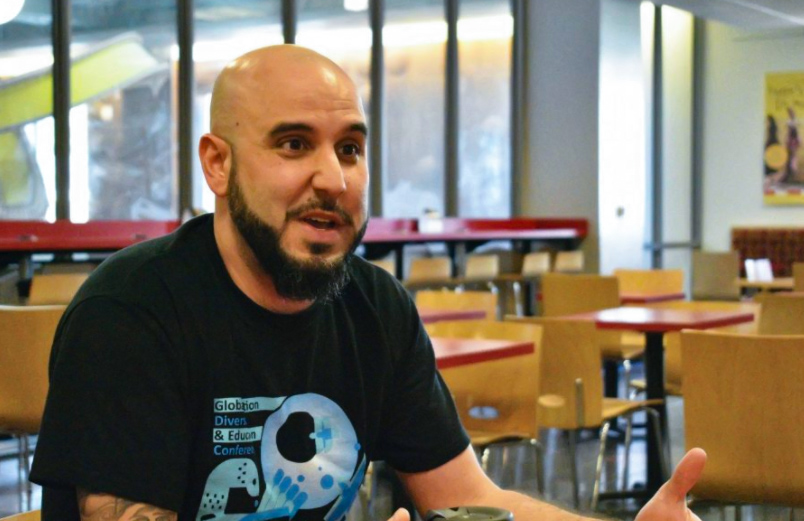‘Fight the ills of society’
WSU assistant professor teaches upcoming educators about social justice, inequalities
DYLAN GREENE | DAILY EVERGREEN FILE
John Lupinacci, assistant professor in the WSU College of Education, said teaching classes over Zoom hindered making connections with students because several of them do not keep their cameras on.
November 2, 2020
John Lupinacci grew up surrounded by teachers who pushed him to learn about social justice and become more involved with his community.
Born and raised in Detroit, Michigan, Lupinacci grew up witnessing racism, sexism and classism in the educational system, he said. The leaders in his community encouraged him and other young people to take care of each other and work to “fight the ills” of society.
Lupinacci, associate professor at WSU’s College of Education, said the Cultural Studies and Social Thought in Education program upholds similar values instilled in him from a young age, which he said is crucial in these difficult, times.
“I tend to be really hopeful and optimistic that young people are on the come up in a moment where there is no way to just witness the moment and let it be,” he said.
In the time of COVID-19, civil unrest and a stirring presidential election, WSU professors regularly discuss the importance of cultural diversity and social justice in education, Lupinacci said.
Although this is an uncertain time for many people, Lupinacci said he is encouraged to see young people who are passionate about social justice issues. As a professor, he is hopeful for how these movements will impact and shape future generations.
Amir Gilmore, another assistant professor in the program, said it is critical for people of all ages to question systems of power and oppression and work to reach equality for all, especially now.
“When looking at power, you really get to the meat and potatoes of why certain things are the way they are and why they have been that way,” Gilmore said. “I think that’s something that’s really important.”
Both Gilmore and Lupinacci said they believe it is essential as educators to address social and racial inequalities impacting the educational system.
Cultural studies already contain complex and difficult information without the added distance learning element, Lupinacci said. Because most of the coursework is taught through Zoom, he said there is a disconnect with students because some keep their cameras and microphones off.
When teaching, Lupinacci keeps technology inequality at the forefront of his mind, he said. Some students do not have access to a stable internet or a quiet place to complete schoolwork.
He said he hopes future educators in his classroom will be considerate of what their students are going through.
As professors, Gilmore and Lupinacci said they encourage their students to engage with social movements outside the classroom, like the Black Lives Matter movement.
“I don’t have the intention for every student to leave this program as some major activist leading marches,” Gilmore said. “Some people want to take action that way and I think it’s great, but some people are writers, poets or musicians.”
Lupinacci said people should understand their limits and boundaries, so they do not overexert themselves in times like a global pandemic.
Ultimately, Lupinacci hopes his students understand the significance of working toward equality and creating diverse spaces in the classroom as they begin their careers, he said.
“It’s not about what knowledge you have, it’s about how you apply that knowledge to yourself and others,” Gilmore said. “It’s about how you share it and use that knowledge to do good in the world and stand up to oppression.”









